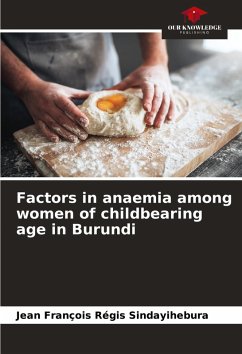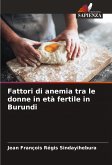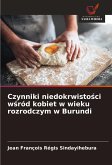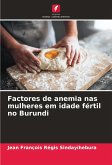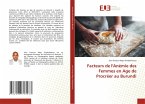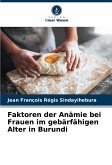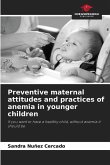Anemia among women of childbearing age in Burundi doubled in prevalence between 2010 and 2016-2017. Constant this evolution contrary to the SDGs and global nutrition targets, this study aims to explore the associated factors. It exploits data from the Burundi Demographic and Health Survey (EDSB III), carried out in 2016-2017. It uses descriptive and explanatory analyses. The results show that the main factors influencing anemia in women are education level, household standard of living and province of residence. These results point to the problem of female education in general, and nutritional education in particular. They also show the challenges imposed by household poverty and the low capacity for community resilience in the face of food shortages. Thus, the continuation of the primary education program for all, as well as the enrolment of girls in school, strategies to increase resilience in provinces hit by climatic hazards, support for rural women's associations, etc. seem to be the best ways to fight anaemia effectively.
Bitte wählen Sie Ihr Anliegen aus.
Rechnungen
Retourenschein anfordern
Bestellstatus
Storno

